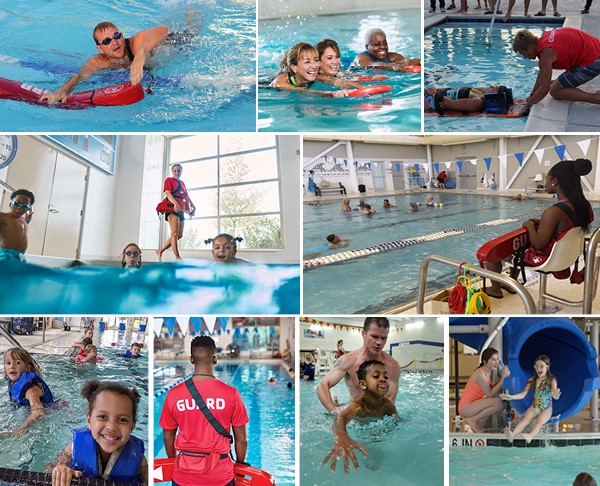The term “first responder" has become a fairly recent staple in our collective vocabularies, as greater recognition for people who do challenging and lifesaving work is long overdue. We rightfully think of firefighters, police, and emergency medical professionals when we hear that term. I’d like to add another under-appreciated profession to that list: lifeguards.
Yes; that profession may conjure an image of a well-tanned young person twirling a whistle while glancing down at an array of swimmers happily floating along in a pool or some other body of water. It seems like a cool, easy job, right? Well, looks are extremely deceiving in this case. While a lifeguard's work appears to be largely uneventful and simple, it’s anything but. They are trained to continuously look for impending or actual danger, and they need to be prepared to act quickly, when seconds can mean the difference between life and death. Certainly, the vast majority of their time is much more about what could be rather than what is. To a lifeguard, the enemy is losing focus, which can lead to losing a life.
With eagle eyes, they see all the fun and they also see when a swimmer may be struggling; when a "regular" lap swimmer, for example, is uncharacteristically sluggish or a child is struggling despite appearing to be happily swimming along. These young people (as the predominance of lifeguards are) are counted on to keep literally thousands of swimmers, of every age and ability, at our 18 pools across central Maryland (including camps) safely and happily enjoying the water every day. This involves keeping a close eye on children in swim classes and zooming around in our family fun pools, adult lap swimmers, swim team and swim class participants and every casual swimmer in between.

In my time here as CEO, there have been countless incidents in which a lifeguard, often working in concert with others in the pool or along the pool deck, has saved someone from drowning. Just recently, a longtime Orokawa Y member and swimmer had a seizure while swimming laps, and he was rescued due to quick thinking and action by several guards and members. Upon getting out of the hospital, he returned to the Y to thank those who saved his life. All of those hours of training, drills, scanning and preparing really do matter. Saving lives is serious business.
They are called "lifeguards" for good reason, so next time you see a Y lifeguard, please thank her or him, but don't be surprised or offended if you don’t get a quick reply. The Y’s lifeguards are doing the jobs they were trained to do and do so incredibly well. We all appreciate that!
All the best,
John
John K. Hoey
President & CEO
The Y in Central Maryland
P.S. If this sort of responsibility sounds rewarding to you, please apply today by clicking here. Do not have lifeguarding experience? No problem, we will train you!